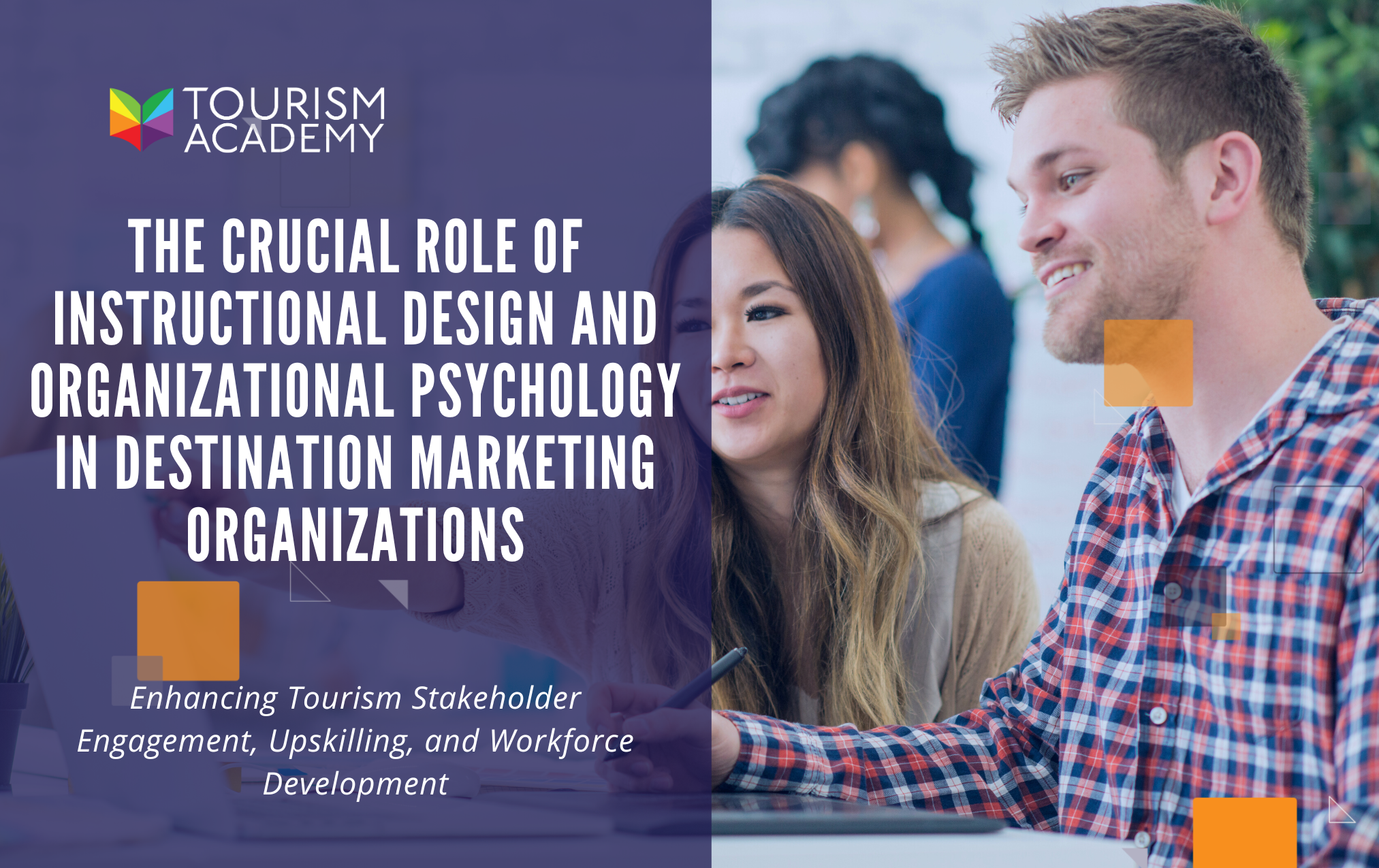
The Crucial Role of Instructional Design and Organizational Psychology in Destination Marketing Organizations
Enhancing Tourism Stakeholder Engagement, Upskilling, and Workforce Development
In the highly competitive world of destination marketing, success relies heavily on effective stakeholder engagement, brand advocacy, and a skilled workforce. Destination marketing organizations (DMOs) must employ sophisticated strategies beyond traditional marketing approaches to achieve these goals. By integrating instructional design and organizational psychology principles, DMOs can foster a dynamic environment that nurtures, trains, and upskills stakeholders, brand ambassadors, and their workforce, ultimately leading to a thriving destination marketing ecosystem.
1. Understanding Instructional Design
Instructional design systematically creates practical learning experiences that cater to specific needs and goals. For DMOs, instructional design is instrumental in developing training programs, educational materials, and workshops that align with their strategic objectives. By following a structured approach to content development, DMOs can ensure that their stakeholders, including tourism partners, local communities, and businesses, receive valuable information. Read about custom course creation.
Benefits of Instructional Design for DMOs:
-
Consistency: Instructional design provides a consistent and standardized approach to training, ensuring all stakeholders receive the same essential knowledge and brand messaging.
-
Scalability: DMOs often operate on a large scale, requiring training and upskilling efforts to reach numerous stakeholders simultaneously. Instructional design allows for scalable solutions that can be easily adapted and implemented across different contexts.
-
Evaluation: Through assessment and feedback mechanisms, instructional design helps DMOs measure the effectiveness of their training programs, making it easier to identify areas for improvement and optimize future initiatives.
2. Leveraging Organizational Psychology
Organizational psychology explores the science of human behavior within workplace environments. For DMOs seeking to engage stakeholders and nurture brand ambassadors, applying corporate psychology principles can significantly enhance their efforts. Understanding the motivations and needs of stakeholders can lead to tailored strategies that foster a sense of ownership and commitment to the destination's success.
Benefits of Organizational Psychology for DMOs:
-
Motivation and Engagement: By understanding the intrinsic and extrinsic motivators of stakeholders and brand ambassadors, DMOs can design initiatives that boost engagement and dedication to promoting the destination.
-
Communication and Collaboration: Organizational psychology provides insights into effective communication and team dynamics, helping DMOs build strong collaborations between stakeholders and internal teams.
-
Talent Development: By identifying individual strengths and potential, DMOs can craft personalized development plans for their workforce, unlocking hidden talent and boosting overall productivity.
3. Upskilling for Sustainable Growth
The travel and tourism industry evolves rapidly, requiring DMOs to stay ahead of the curve. Upskilling is vital to ensure that all stakeholders, brand ambassadors, and the workforce possess the knowledge and skills to navigate the ever-changing landscape of destination marketing.
DMOs can implement upskilling initiatives through a combination of instructional design and organizational psychology approaches:
-
Continuous Learning: DMOs can create a culture of continuous learning by offering accessible online training platforms, workshops, and seminars that keep stakeholders and employees updated with industry trends.
-
Specialized Training: Instructional design allows DMOs to tailor training programs based on the unique needs of various stakeholders, such as travel agents, local businesses, or hospitality professionals.
-
Skill Development for Brand Ambassadors: Brand ambassadors play a crucial role in destination marketing. Organizational psychology principles can be applied to identify potential brand advocates and develop their skills in storytelling, social media engagement, and public speaking.
Conclusion
In the fiercely competitive landscape of destination marketing, DMOs must proactively engage stakeholders, nurture brand ambassadors, and upskill their workforce to achieve sustainable growth. DMOs can create a cohesive and dynamic environment that empowers stakeholders and employees by integrating instructional design and organizational psychology principles into their strategies. Through consistent and effective training initiatives, destination marketing organizations can secure their position as travel and tourism industry leaders.


Leave a comment